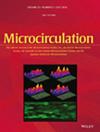Physiologically—Modeled Dynamic Stimulation and Growth Factors Induce Differentiation of Mesenchymal Stem Cells to a Vascular Endothelial Cell Phenotype
Abstract
Objective
Mesenchymal stem cells (MSCs) represent an attractive option as an endothelial cell (EC) source for regenerative medicine therapies. However, the differentiation of MSCs toward an ECs phenotype can be regulated by a complex and dynamic microenvironment, including specific growth factors as well as local mechanical cues. The objective of this work was to evaluate whether Physiologically-modeled dynamic stimulation (PMDS) characterized by continuous variability in pulse frequencies mimicking the dynamic temporal range of cardiac function would enhance MSC differentiation toward ECs compared to a constant frequency stimulation.
Methods
Mesenchymal stem cells were grown in a complex growth factor cocktail versus standard culture media to initiate the endothelial differentiation process, then subsequently exposed to PMDS that vary in duration and constant flow (CF) at a fixed 10 dynes/cm2 shear stress and 1.3 Hz frequency.
Results
Both PMDS and media type strongly influence cell differentiation and function. Cells were shown to significantly upregulate eNOS activity and displayed lower TNF-a induced leukocyte adhesion compared to cells cultured under CF, consistent with a more quiescent ECs phenotype that regulates anti-inflammatory and anti-thrombotic states.
Conclusion
These findings suggest that the dynamic microenvironment created by perfusion, in contrast to constant frequency, combined with growth factors, enhances MSCs differentiation toward a vascular endothelial-like phenotype.

 求助内容:
求助内容: 应助结果提醒方式:
应助结果提醒方式:


